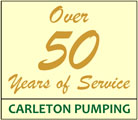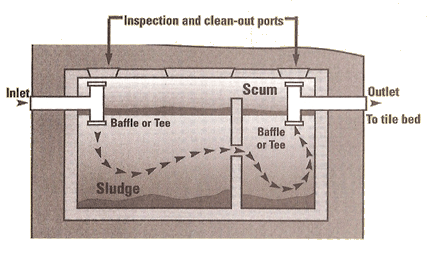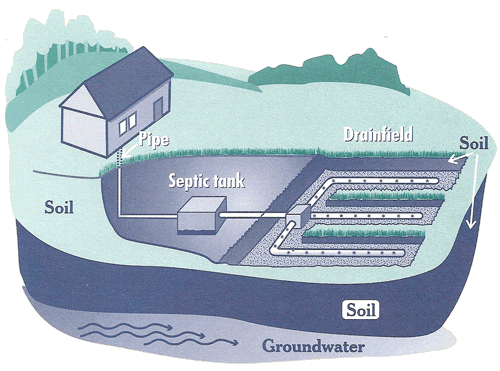Septic Pumping Services
 We serve both residential and commercial clients. To receive a free quote, submit our estimate form. We proudly service customers from Ottawa to Merrickville!
We serve both residential and commercial clients. To receive a free quote, submit our estimate form. We proudly service customers from Ottawa to Merrickville!
Announcing our new service areas: Kemptville, Merrickville and surrounding areas. If you are unsure whether we service your area please contact us and we will gladly assist. We look forward to hearing from you!
Commercial Septic Pumping Services in Ottawa
There is no job that is too large for our team. We have several large trucks ready for any sized job. Contact us to find out how we can provide you with the best possible service for an affordable price! Submit the form on this page to request a quote online or you can call us at 613-838-5500.

Residential Septic Pumping Services in Ottawa
All of your household wastewater exits your home through a pipe to the septic tank. The septic tank is a buried, watertight container typically made of concrete, fibreglass, or polyethylene. It holds the waste water long enough to allow solids to settle out (forming sludge) and oil and grease to float to the surface (as scum). It also allows partial decomposition of the solid materials.
Compartments and a T-shaped outlet in the septic tank prevent the sludge and scum from leaving the tank and traveling into the drainfield area. Screens are also recommended to keep solids from entering the drainfield. Newer tanks generally have risers with lids at the ground surface to allow easy location, inspection, and pumping of the tank.

How your septic system works
A septic system is an onsite wastewater treatment system that processes and purifies household waste (effluent). The effluent consists of black water (toilet wastes) and grey water (kitchen, sink, bathtub, and laundry wastes). A septic system has two components: a septic tank and a leachfield or drainfield. Primary treatment occurs in the septic tank, where bacteria digest organic materials in the wastewater. The effluent then flows into the leachfield for secondary treatment.
What Your Tank Does
The most important component of your septic system is the septic tank, which is the underground, waterproof container designed to:
-
- Receive wastewater from your home.
-
- Separate solids from liquids.
-
- Partially digest organic matter.
-
- Store liquids.
-
- Deliver relatively clear liquid to the absorption field.
In a properly functioning tank, solids and liquids are effectively separated. Solids and partially decomposed sludge settle to the bottom of the tank and accumulate while scum of lightweight material (including fats and greases) rise to the top. The clear liquid that settles between the scum and the sludge layers, known as the clarified zone, carries over to the absorption field.
When Septic Systems Don’t Work
If the tank is not pumped out regularly, the sludge and/or scum layers will be drawn into the wastewater distributed to the tile bed, eventually overloading the system. After sufficient overload time, the tile bed will no longer be capable of distributing the wastewater into the ground, causing “breakouts”.
These are direct discharges of partially treated wastewater onto the ground surface. Sewage and its associated wastes will filter into the soil, contaminating everything it reaches – your well, your neighbour’s well, the underground water supply, and local streams and rivers.
If too much water is dumped in the tank, the tile bed will be overloaded with the same result, as well as the possibility of it backing up into your house.
If excess household chemicals, soaps, and detergents are washed into the septic tank, the bacterial action may be slowed or killed.
Call Me Back™
We also offer a Callback Service for our clients. Let us call you when the recommended maintenance date for your system is approaching. This courtesy service ensures that your system will remain in excellent and working condition.
To protect your investment through our FREE Callback Service, click here or call us at 613-838-5500.
Septic System Tips
To prevent build up, sludge and floating scum need to be removed through periodic pumping of the septic tank. Regular inspections and pumping are the best and cheapest way to keep your septic system in good working order.
Free Download
You can download your own copy of knowing and maintaining your septic system by clicking here. Filled with tons of tips and important information.
